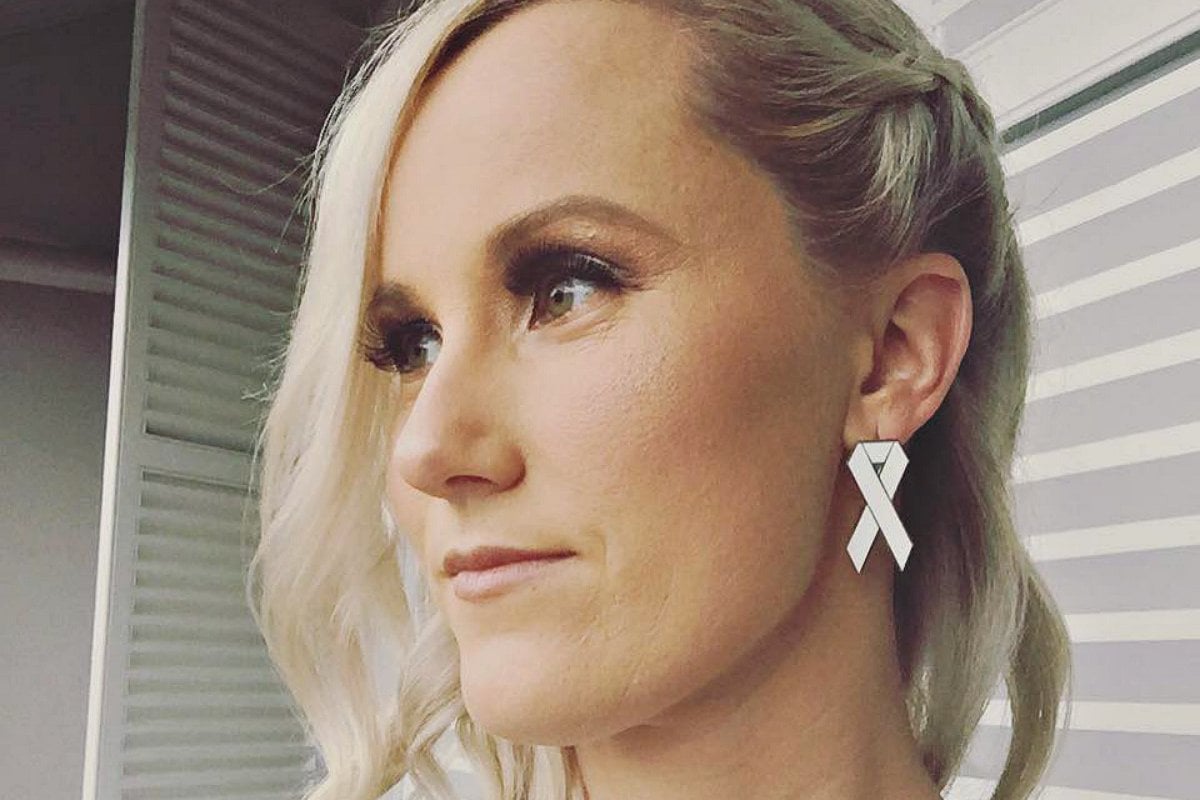
The following contains details of abuse and domestic violence, which may be triggering for some readers.
It was mid 2016 when Angela Jay downloaded the dating app Tinder.
She was 28, recently separated from her husband and living in the NSW mid-north coast town of Port Macquarie where she'd been seconded as a junior doctor.
"I was in a new town feeling quite lonely away from my family. And I was really trying to push myself that it was time to get out there again and to open up my heart to a new relationship," she told Mamamia's True Crime Conversations podcast.
Watch: Violence against women, the hidden numbers. Post continues below.
Among the people Angela matched with was 36-year-old Paul Lambert, a conventionally handsome man with dark hair, a strong jaw and a dimpled cheek.
He'd used Tinder's 'Super Like' feature to express particular interest in Angela. Flattered, she started chatting.
Lambert struck her as funny, intelligent and deep; someone capable of having conversations of substance. After getting to know each other virtually, they arranged a date.





























































































